How a horrible goose topped the gaming chart
- Published
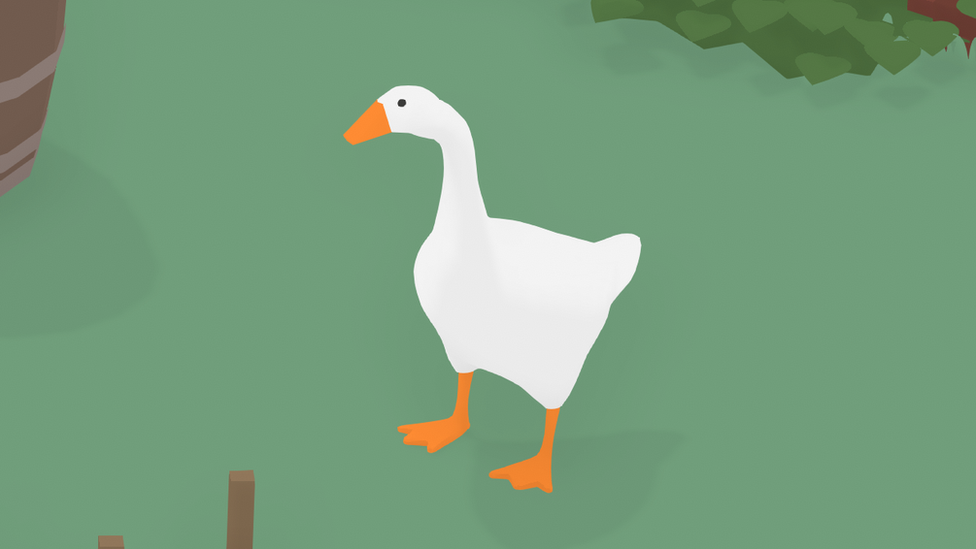
Untitled Goose Game tells the story of a horrible goose
Against all the odds, an unnamed goose has topped the download charts on the Nintendo Switch console in the UK and Australia.
It has even beaten one of Nintendo's own highly-anticipated games, the Legend of Zelda: Link's Awakening.
It all started two years ago, with a photo of a goose shared in a group chat. The small team of game developers discussed what made geese so amusing.
Was it their "crazy" colouring? Their "frowning" faces? Perhaps simply their "honking noise"?
They decided to make the creature the star of their next game, and posted a teaser video on YouTube.
"We had very little expectation of attention," says Jake Strasser from the House House studio.
"Within a matter of hours we knew that something was up. The video had been watched maybe half a million times. The retweets started pouring in. We hit the number one spot on Reddit that night. We hadn't realised what was on our hands."
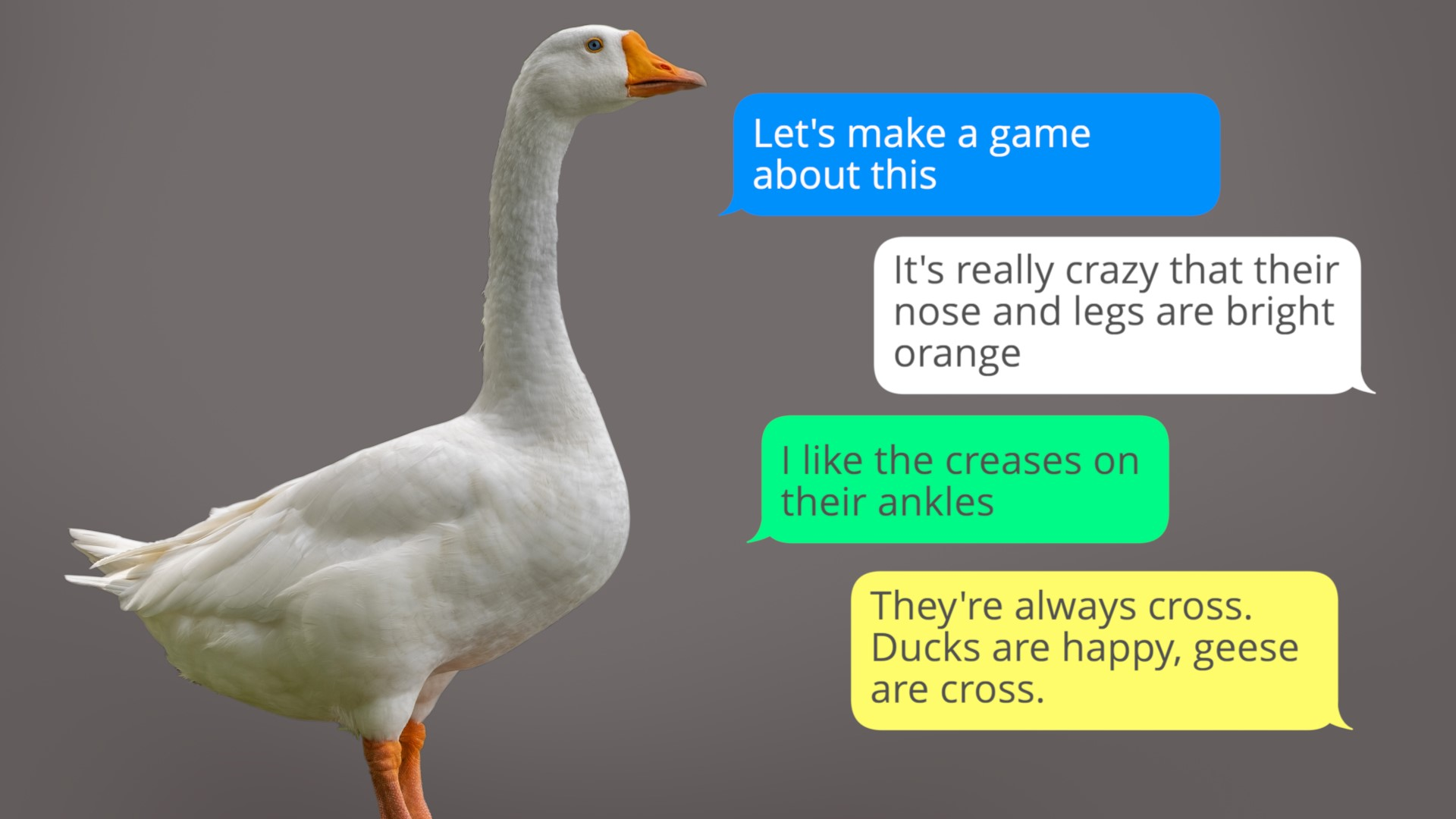
The developers joked about geese in their group chat
This early social media attention undoubtedly gave the goose a lift. In the crowded games market, having all the ingredients of a hit does not always guarantee success.
"There's just too many games coming out, and some people who are making amazing games need to know how to sell them as well," says Mike Rose, director of a rival indie games publisher, No More Robots.
"If you can get across the concept of your game in the form of a pictures or simple phrase, then you're on to a winner."
In Untitled Goose Game, the player assumes the role of a horrible goose and terrorises the inhabitants of a sleepy English village.
There is no motive other than causing mischief, which Nico Disseldorp, who worked on Untitled Goose Game, credits with capturing gamers' interest.
"I think the goose character allows people to be this source of mischief that lots of people desire being in video games," he told the BBC.
"No matter what the game is, you find a certain kind of player will look for ways of making mischief. They may even ignore the story that's been laid out for them, to go and do something mischievous instead. In this game, you're told to go in there and make as big a mess as possible."
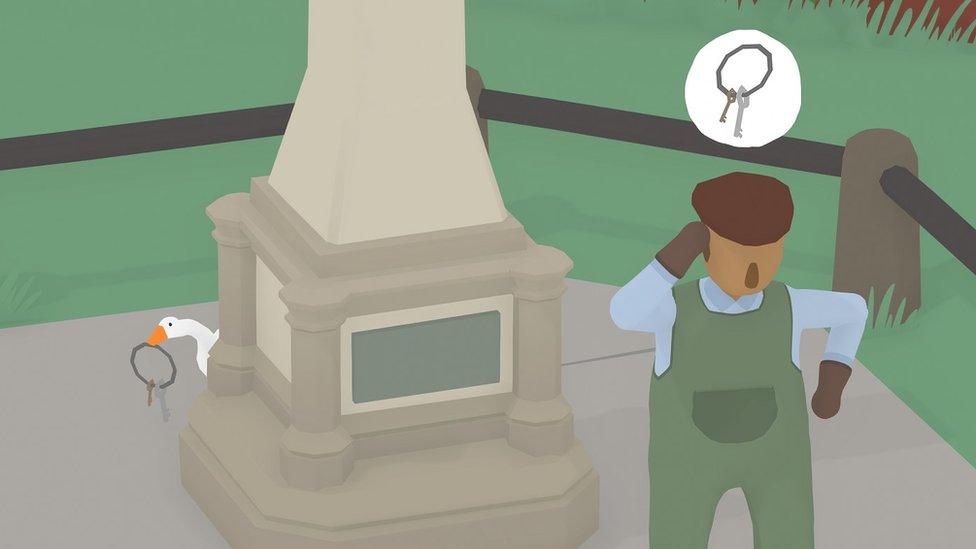
Objective: steal the groundkeeper's keys
The game has been compared to the Hitman series, in which assassin Agent 47 concocts elaborate schemes to take out his targets.
Mr Disseldorp says the team "definitely drew a lot from Hitman games", but not always intentionally.
"We wanted the small moments of mischief and gradually gravitated towards stealth games where the player might know things that other characters on the screen don't know. We realised it was very rich for the kinds of comedic moments that we were trying to add to our game," he said.
Mr Strasser says the format of an assassination in Hitman is similar to a prank or a joke: "It has a set-up and a punchline. By removing the violence from it, we just let the situations exist as a joke."
Another key ingredient in a hit game is a strong protagonist, and Mr Disseldorp says geese stood out for being "expressive" and full of attitude.
"We don't really have geese in our lives here in urban Melbourne. But we realised that people who live near geese have this very particular relationship with them, they're often very afraid of geese and that seems very strange to us," he explains. "The relationship that people have with geese seems to be almost like the relationship you would have with a person you don't like."
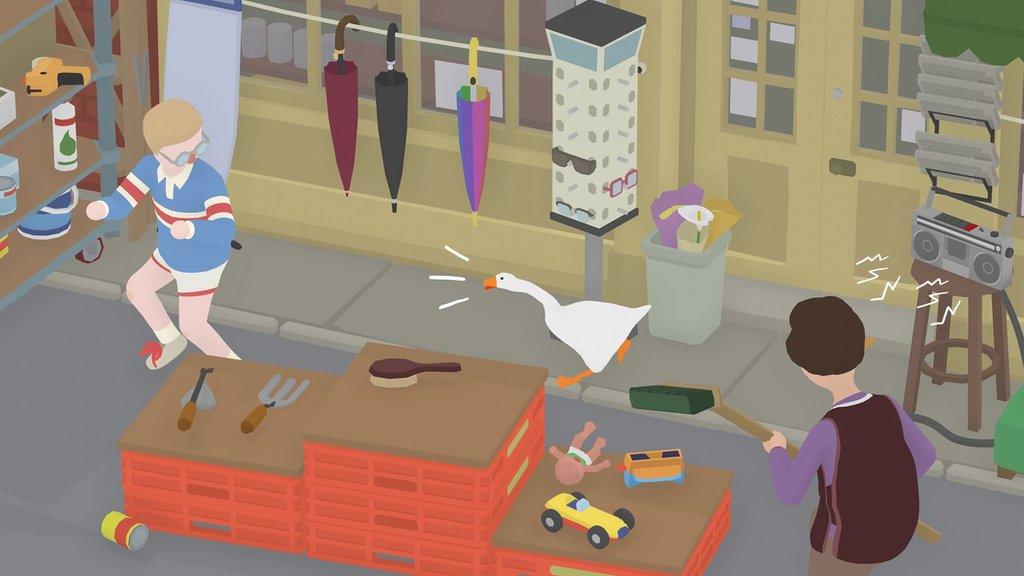
Objective: lock the wimpy kid in a phone booth
Although the developers are based in Australia, they set the game in a quiet English village, which they describe as a "natural habitat" for the bird.
"There's something about the kind of properness of an English village that seems to be the antithesis of what the goose was all about. If the goose was going to be chaotic and making a mess, then the natural foil seemed to be these people who wanted to preserve order," says Mr Disseldorp.
What did the villagers do to deserve their torment? Nothing, he says.
"The goose isn't morally righteous. The goose sits outside of human morality. They aren't causing trouble because it's the right thing to do... they're doing it because they're a goose."
Videos of the mischief-making bird were "perfect social media fodder," says Mr Rose, which helped spread the word about the game.
"I say to so many developers, that the the social media and marketing is just as important as the actual making of the game," he told the BBC.
"You see amazing games come out every single week that get barely any sales, because they didn't do a good enough job of actually sharing it around and promoting the game."
But he said House House had created a "perfect" game for sharing on social media.
"Not many people would scroll past a video of a goose being horrible on Twitter."
The social media response also helped the team decide not to name their game.
The first teaser uploaded to YouTube, external was simply called Untitled Goose Game, and fans embraced it as an official title.
Mr Strasser says the only other contender for a name was Some Like It Honk.
When he mentions the name, Strasser and Disseldorp giggle.
"It wasn't viable," Mr Strasser explains.
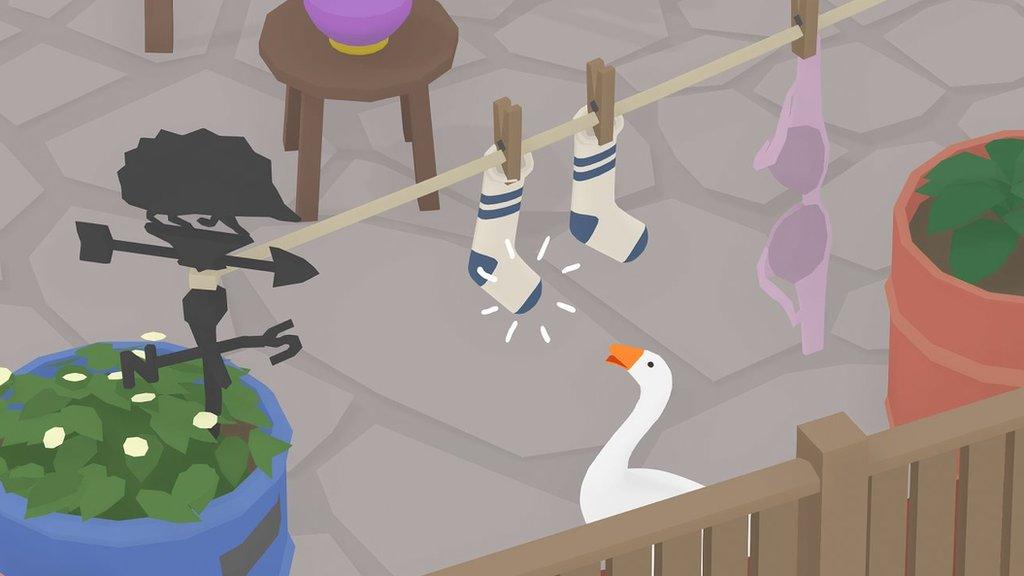
Objective: stealing the washing
So, now the game is out, has it lived up to the hype?
Reviews have been generally favourable, although some critics say the game is too short and some of the puzzles too obtuse.
Mr Disseldorp says the team was not too concerned with the length of the game, which can be completed in one sitting.
"We knew from the beginning that we wanted the player to progress through this village. We knew the kinds of moments and characters we wanted to have," says Mr Disseldorp.
"When we got people to our office, we started timing how long it took them to play and they seemed to take about four hours, on average. It seems now the game is out, some people are playing it faster than that. But when it comes to the games that we play, we don't really worry if it's short or long. I think it's really nice that people can play to the end of this thing without spending their life on it."
As well as countless memes, fans have offered suggestions for what they would like to see in the game. But the team says it is too early to think about a sequel.
"Right now we're still looking at the next patch for the game to fix a few bugs," says Mr Disseldorp.
"It's taken everything we had to get us to this point, so we haven't been in the background concocting a sequel just yet."